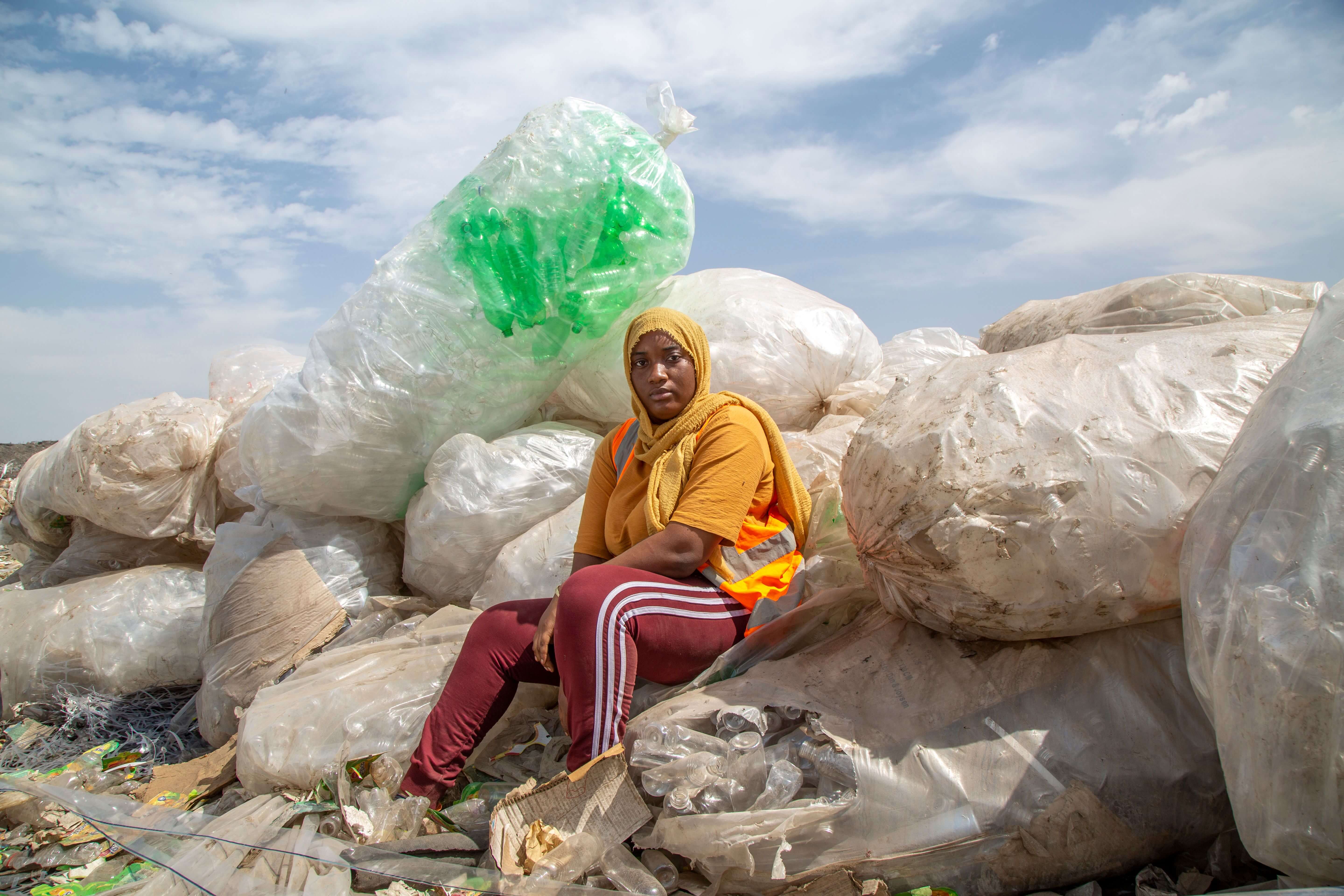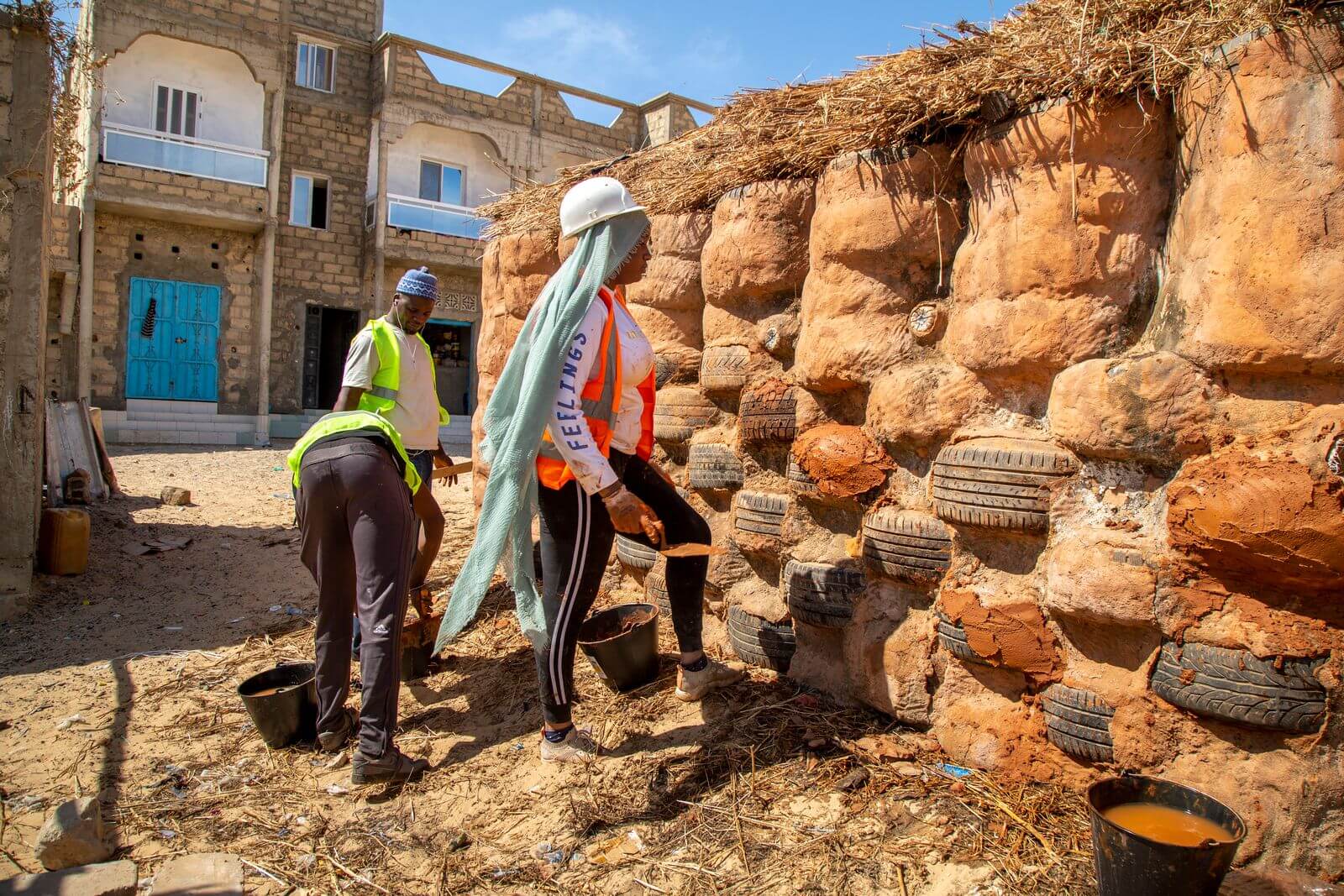The storage unit preserves agricultural products for longer periods of time than traditional storage. Using zero energy, potatoes can be stored for up to three months and onions up to six months, using the principle of thermic conservation. Traditional storage methods currently store potatoes for up to two weeks and onions for up to three.
I3S uses tyres for the walls of the storage unit, linked by sticks and plastic bottles for stability. Plastic bags are used for isolation and the unit is then covered in a red soil called laterite. This functions as the thermic envelope; thermic exchange between this envelope and the exterior wall ensures a cool temperature within the unit.
Civil engineer Marie Ndieguene developed I3S to bring appropriate and affordable storage solutions to farmers. Ndieguene and her team carried out a study among farmers in Deni Biram Ndao, Kayar, Mboro and Malem Hodar in Senegal, and found that for 95% of farmers, adequate storage is a major challenge. As storage units are unaffordable, farmers either sell crops quickly at lower prices, or suffer losses when crops are spoiled.
Three years after the study, Ndieguene and her team built two storage spaces in two communities, preserving 245.34 tonnes of potatoes and onions and impacting the lives of 2,300 families. The team has recycled more than 20,000 tires, 20,000 plastic bags and 30,000 bottles, showing that I3S can turn waste pollution into a food security solution.

“The development of this new construction technique will revolutionise the agricultural world. It is also a solution to the ecological disaster we face with massive landfills. We are working with the community to tackle pollution and food insecurity, solving two problems with one innovation.”
Marie Ndieguene, I3S


